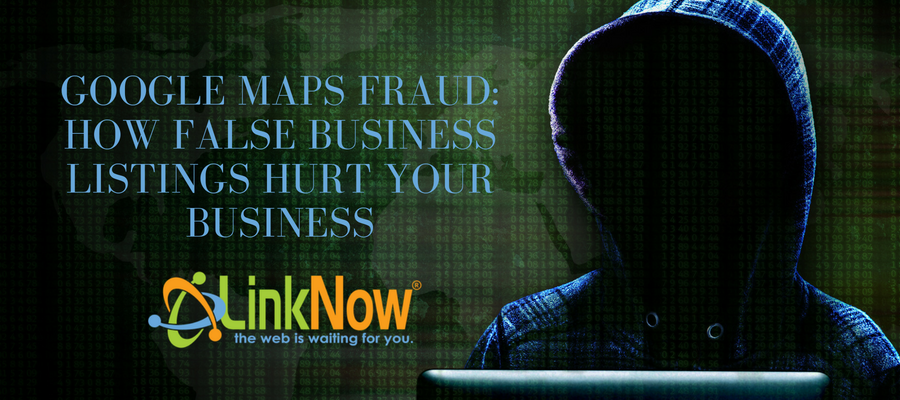
This article by CNBC is a good primer on an increasing phenomenon: businesses using Google Maps in a fraudulent fashion to increase calls to their business.
The article details the example of a telemedicine business that posed as an urgent care walk-in clinic to improve the SEO for their website. We’re sure you know how important a tool Google My Business is when it comes to improving your website ranking in local searches. But it’s easy to see how this can lead to abuses that can have serious consequences.
In this case, a parent took a sick child to the fake clinic believing it to be a late-night alternative to a local emergency room. That’s not only bad for business but in cases like this, it’s negligent and dangerous!
Google Maps Fake Listings: How Widespread Is the Problem?
The CNBC article goes into detail about volunteers who track down fake listings on Google Maps and report them for abuses.
If you spend ten or fifteen minutes on the web looking at the listings near you, we’re sure you’ll be able to find a fake listing within a few blocks of your home or workplace. Many of these listings are propped up by fake five-star reviews written by freelancers for as little as five dollars.
This is similar to the way that “The Shed at Dulwich ” managed to get to the top of the rankings on TripAdvisor. It just goes to show the power of reviews: they can make a huge difference to your website’s performance. Unfortunately, scammers know this too.
Is Google Doing Enough to Stop Fake Listings?
Google claims that only 0.5% of all impressions on Google Maps were for fake listings,but at least one prominent voice in the world of search questions this statistic. .
The Internet has given great power to business owners and to customers. But those tools are ripe for abuse if not placed under the proper checks and balances. Many people who work closely with
Google My Business such as Joy Hawkins of Sterling Sky suggest that Google needs to do more to combat the problem of Google Maps fraud.
Google has made many changes to their verification process over the years. For some types of fraud, this has been more effective: you can no longer verify a listing for a virtual location and need to at least be able to receive mail to that building.
But this isn’t a perfect system. It doesn’t stop anyone from creating a business listing if they have a mailbox, for example. And as Hawkins points out above, there is no recourse for business owners to report scamming competitors.
Why doesn’t Google have a system in place to allow machines to do the work of volunteers? It seems strange that there isn’t an algorithm in place to catch someone leaving a review of 3,000 different Starbucks, which is obviously not a realistic number for an actual person to visit.
How is it that volunteers with a little time and energy can find so many vulnerabilities in Google Maps and Google My Business, yet the parent company that produced these products doesn’t seem to be able to stop fake businesses? It hardly seems out of reach for the most powerful technology company in the world to derive an algorithm that picks up on suspicious review patterns like this one.
Google, is, of course, being rather quiet on these issues. They may have fixes coming down the pipeline, but we won’t know until an official announcement is made—if an announcement is made at all.
Locksmith Scams: The Scourge of Google Maps
Medicine isn’t the only industry vulnerable to these sorts of scams. The linked CNBC article goes into detail about the preponderance of garage doors scams, each using the same stock photo modified with a different name and phone number.
But the number one industry vulnerable to Google Maps scams? Locksmiths. The New York Times reported in 2016, predatory locksmithing companies exist in every major city and use Google My Business and Google Maps to do their dirty work.
The scam was also investigated by one of my favourite podcasts, Reply All, in the episode titled ‘Very Quickly to the Drill’, which you can find here. This entertaining and hilarious episode provides a great layman’s overview of how the scam works, but I’m going to provide an in-depth rundown here too.
Like all scams, it begins with a mark. In this case, it’s vulnerable persons who have misplaced their keys or are unable to get into their homes or apartments. If you’ve ever been in this situation before, you know how stressful it is—and if you haven’t, I’m sure it’s not too hard to imagine.
When you have a situation that needs a locksmith, you’re usually tired, frustrated and stressed out. And the issue with scams that use Google Maps is that the scammers are exploiting a trusted source. You trust the billion-dollar company with a foothold everywhere on the Internet to provide accurate information. And many consumers, like myself, use Google every day without a second thought.
When you combine that willingness to place faith in trusted sources like Google Maps with the pressure-cooker scenario that losing your keys or being locked out of your house creates, it’s easy to see how you could fall for an unscrupulous company. Especially if that company happens to be located three blocks away from your house.
The problem is that these locksmith companies aren’t real. When you call one of the dozens of listings near number, your call redirects to a central line that sends over one of their ‘technicians’ as soon as they can. The service might be speedy, but rather than fix your door, the untrained locksmith will drill right through it.
Real locksmiths will try all options before they head to the drill, and usually fix your problems without resorting to this measure. The scam is so frustrating for real locksmiths that they’ve even sued Google to try and get the corporate giant to respond to the problem.
How Does the Scam Work?
If you’re familiar with Google My Business (and as a small business owner “you should be)” , the scam is pretty simple to understand. Owners of these scam companies set up false listings for locksmith companies all over major cities. Like, all over the city. Locksmithing is a service that many people need, but probably not in-demand enough to sustain dozens or even hundreds of businesses in a single place. So when you search ‘locksmiths near me’, you’ll find these businesses all have unique addresses, names, and phone numbers, but they all redirect to a central number. Many of these businesses will be supported by fake reviews, or use other
“” black hat methods of SEO abuse such as keyword spamming.
These are tactics that would very quickly see your business punished in the rankings or delisted, which is not what you want when you operate a single location business. But when the listings don’t represent a real brand that you’ve worked hard to build from the ground up—well, that isn’t so bad—you’ll recycle the phone number and set up another one.
Google Strikes Back?
So why doesn’t Google do more to fix its problem with false and fraudulent listings on Google Maps? The most likely answer is that there isn’t legal and financial pressure to do. Google Maps generates income for Google, but as a supplement to its other products.
The $1.5 billion USD generated by Google Maps seems like a lot until you remember it’s part of the $110 billion USD that Alphabet earned last year. Google hasn’t truly monetized the product in the 13 years it has been around.
There’s very little regulation on behalf of governments in both the United States and beyond, who see the presence of Google in their country as a net positive for economic gain. Regulation threatens that steady stream of commerce, and until catastrophic injury or worse happens to someone as a result of these scams, lawmakers won’t want to shut off the gravy train.
That allows locksmith scams to continue abated until better protections are in place. And for now, fighting them has relied on volunteers and those interested in search and search engine marketing.
What Are the Consequences of This Inaction on Maps Fraud?
So I just said that there haven’t been major actions by Google to solve these problems in their Maps products and in Google My Business. It may sound like I’m on the side of Google in the above paragraph—that Google generates income, therefore it should be allowed to continue unabated.
I’m not saying that at all! Because the problem is that when fraud is left unchecked, public trust begins to erode. We’re seeing it all over the world as the Internet changes our relationships to traditional institutions and media faster than we can process it.
Eventually, if Maps fraud becomes so widespread with no solution, customers will start to distrust Maps (and as an extension all Google products). In an era of fake news, when consumers don’t trust in your business and the information that they’re providing you, they’ll go elsewhere.
But not until there’s a critical mass. Nothing’s touching that search engine market share just yet.
Does This Mean I Shouldn’t Use Google Maps or Google My Business?
In a word: no. These products are incredible tools for advertising your small business. (If you don’t have one set up, I need you to Call Us our GMB department right away.).
And just because no fix has been announced yet for GMB, it doesn’t mean one isn’t coming. Major media companies have reported on the various ways company abuse Google’s systems. And as we know,
“Google My Business ” is improving all the time. It even seems like Alphabet is priming for GMB to become the new homepage, according to some industry experts.
How to Rank Your Business the Right Way
The way that abusive affiliate marketers work is by volume. Both the marketing companies that employ the shady tactics seen in this article know they’re playing with fire. But by spreading out the risk among thousands of fake profiles or dozens of fake businesses, they minimize the danger that Google or any parent company they abuse discover and shut down the whole network.
In fact, it seems like unpaid volunteers are the best way to discover these networks. Which should change.
So what’s to stop you from employing this shady search-engine marketing tactics? I mean, don’t let us stop you.
But when you are a small business owner, you’re building more than just a good search ranking. The best businesses combine good practices, a connection to their communities and their customers, and corporate values that are embodied in their everyday policies.
These things take time. Just like ascending to the top of the rankings in Google or Bing takes a long time. But it is possible, and the short-term gains that employing fake reviews or other Google Maps spam don’t last. All it takes is one update or one eagle-eyed volunteer to remove your Internet presence.
When you build from the ground up, you’re building a brand both you and your customers can be proud of. That’s what our company is all about: lasting and sustainable web development that gets you customers in the short-term and the long-term too.
It’s why from local SEO to content creation, we handle every aspect of the web design and marketing ourselves. And with over 9,000 happy clients to show for it, we’re proud of the work we’ve put in for small businesses all across North America.
If you want help taking your business from the bottom to the top of the Google My Business world, Call Us today!


I appreciate the detail in this article. Well written and too the point!